
Panaji: The Charming Heart of Goa
Panaji, the capital of Goa, is a delightful mix of old-world charm and modern vibrancy. Nestled along the banks of the Mandovi River, this picturesque neighbourhood showcases a blend of colonial-era architecture, bustling markets, and serene riverside promenades. Strolling through the streets of Panaji, you'll discover quaint Portuguese-style houses with red-tiled roofs, colorful facades, and intricate balconies. The historic Latin Quarter of Fontainhas is a must-visit, where you can lose yourself in narrow lanes adorned with vibrant murals and artisanal shops. The iconic Church of Our Lady of the Immaculate Conception stands as a beacon at the heart of Panaji, with its pristine white structure and grand staircase. Nearby, the 18th June Road offers an array of shopping options, from local handicrafts to designer boutiques. For nature lovers, a visit to the Miramar Beach provides a peaceful escape with its golden sands and swaying palm trees. The riverfront promenade, lined with cafes and eateries, offers stunning views of the sunset over the Mandovi River. Panaji's culinary scene is a delightful fusion of Goan, Portuguese, and international flavors. From traditional seafood restaurants to cozy bakeries, the city offers a diverse range of dining experiences. Don't miss out on trying the local Goan delicacies such as fish curry, bebinca, and feni.
Local tips in Panaji
- Visit Fontainhas in the early morning or late afternoon to experience its beauty without the crowds.
- Try the local Goan breakfast at a traditional eatery for an authentic culinary experience.
- Take a sunset cruise on the Mandovi River for a relaxing and scenic end to your day.
- Wear comfortable walking shoes as many attractions are best explored on foot.
- Check out local festivals and events happening during your visit to experience Panaji's vibrant culture.
Panaji: The Charming Heart of Goa
Panaji, the capital of Goa, is a delightful mix of old-world charm and modern vibrancy. Nestled along the banks of the Mandovi River, this picturesque neighbourhood showcases a blend of colonial-era architecture, bustling markets, and serene riverside promenades. Strolling through the streets of Panaji, you'll discover quaint Portuguese-style houses with red-tiled roofs, colorful facades, and intricate balconies. The historic Latin Quarter of Fontainhas is a must-visit, where you can lose yourself in narrow lanes adorned with vibrant murals and artisanal shops. The iconic Church of Our Lady of the Immaculate Conception stands as a beacon at the heart of Panaji, with its pristine white structure and grand staircase. Nearby, the 18th June Road offers an array of shopping options, from local handicrafts to designer boutiques. For nature lovers, a visit to the Miramar Beach provides a peaceful escape with its golden sands and swaying palm trees. The riverfront promenade, lined with cafes and eateries, offers stunning views of the sunset over the Mandovi River. Panaji's culinary scene is a delightful fusion of Goan, Portuguese, and international flavors. From traditional seafood restaurants to cozy bakeries, the city offers a diverse range of dining experiences. Don't miss out on trying the local Goan delicacies such as fish curry, bebinca, and feni.
Iconic landmarks you can’t miss
Immaculate Conception Church
Explore the architectural beauty and serene ambiance of the Immaculate Conception Church in the heart of Panaji, Goa.
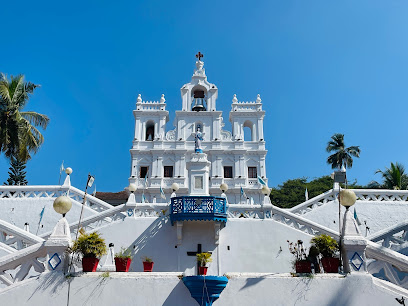
Campal Gardens
Experience the tranquil beauty of Campal Gardens in Panaji, a perfect escape into nature amidst the vibrant culture of Goa.
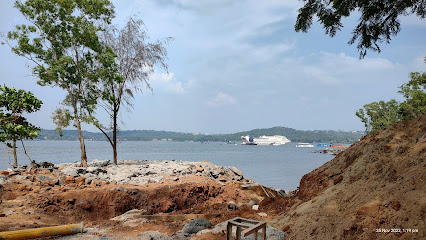
Azad Maidan
Explore Azad Maidan in Panaji, Goa—a historic park celebrating freedom fighters amidst lush greenery and vibrant local culture.
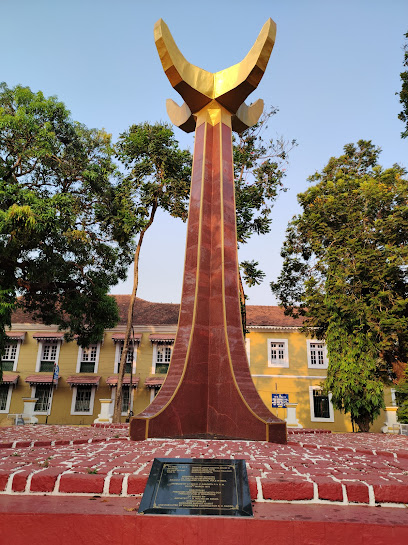
St. Sebastian's Chapel, Goa
Explore the serene beauty and rich history of St. Sebastian's Chapel in Goa, a peaceful retreat for travelers and worshippers alike.
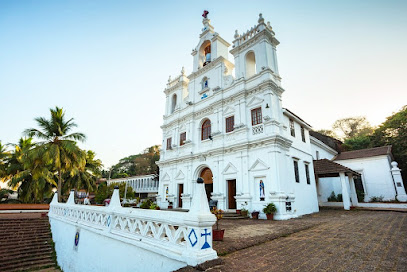
Fountainhas Colorful Houses
Explore the vibrant streets of Fountainhas in Panaji, Goa, where colorful houses and rich heritage come together to create an unforgettable experience.
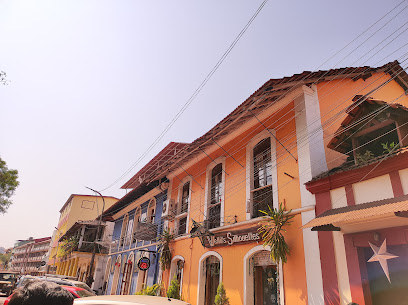
Panjim Promenade
Explore the scenic beauty and vibrant culture of Panjim Promenade, a must-visit waterfront destination in Goa that captivates all who wander here.
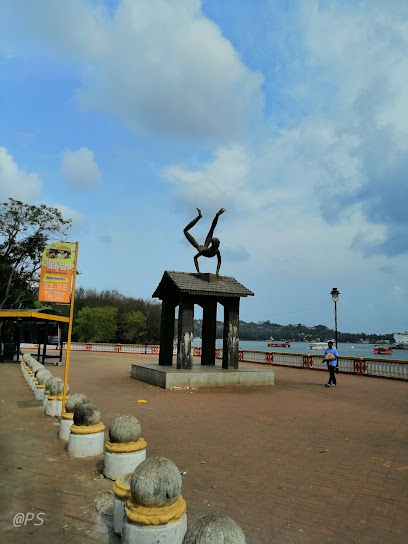
Indian Customs & Central Excise Museum
Explore the Indian Customs & Central Excise Museum for a unique insight into India's taxation history and its impact on the nation's development.
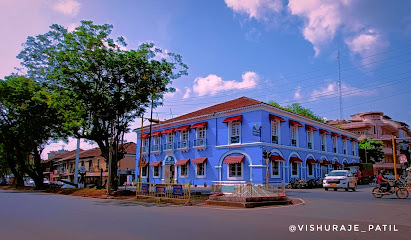
Statue of Abbé Faria
Explore the Statue of Abbé Faria in Panaji, Goa, a stunning sculpture celebrating the legacy of a Portuguese priest and hypnotist amidst scenic views.
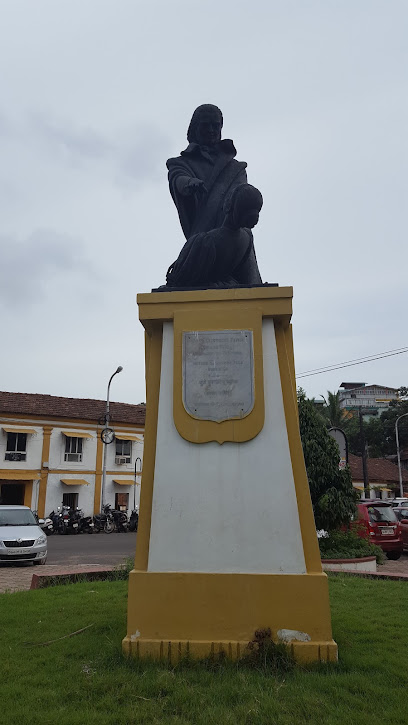
Praça de Igreja View Point
Discover the serene beauty and historical charm of Praça de Igreja View Point in Goa, a perfect retreat for nature lovers and photographers alike.
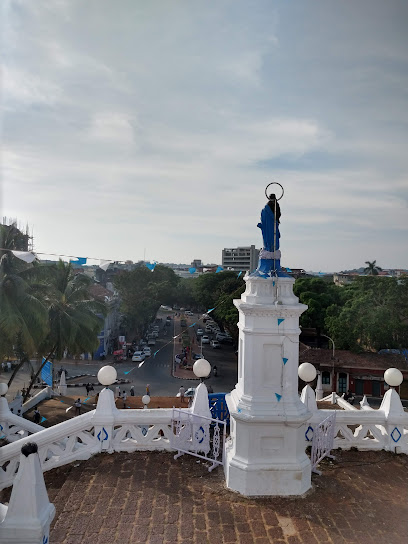
Lady with long hair statue
Explore the captivating Lady with Long Hair statue in Panaji, Goa—a unique blend of art, culture, and local charm in the heart of the city.
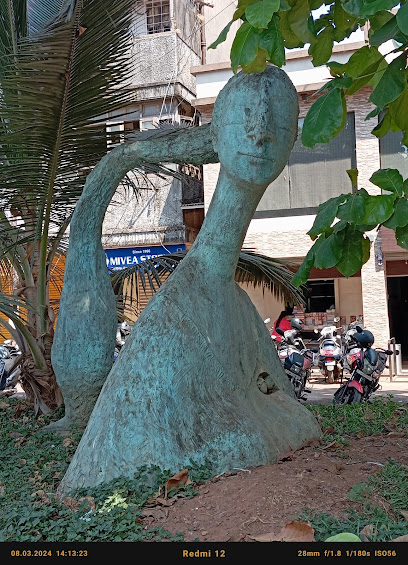
Unmissable attractions to see
Dona Paula View Point
Experience breathtaking panoramic views and a romantic ambiance at Goa's iconic Dona Paula View Point, a blend of natural beauty and rich history.
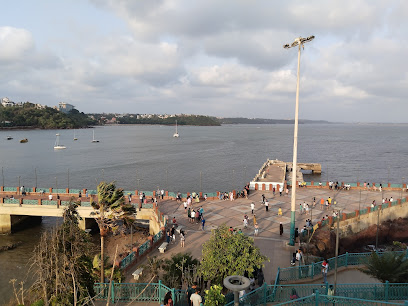
Immaculate Conception Church
A historic Portuguese Baroque church in Panaji, Goa, famed for its stunning architecture and iconic zigzag staircase.
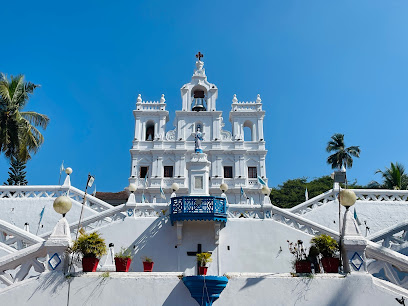
Campal Gardens
Escape to Panaji's serene Campal Gardens for lush greenery, family fun, and a peaceful retreat by the Mandovi River.
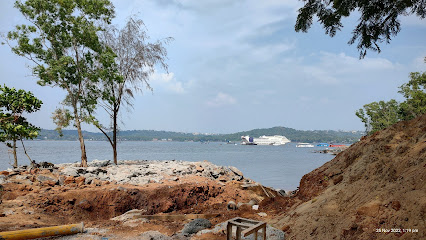
Azad Maidan
Experience the cultural heart of Goa at Azad Maidan, a vibrant park and historical landmark perfect for relaxation and exploration.
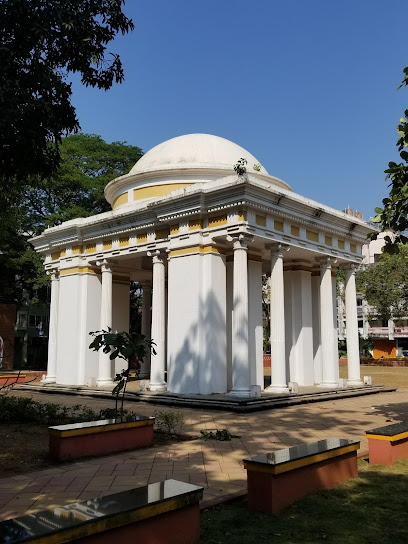
Goa Science Centre & Planetarium
Explore interactive science exhibits, planetarium shows, and 3D films at Goa's premier science center near Miramar Beach. A fun and educational experience for all!
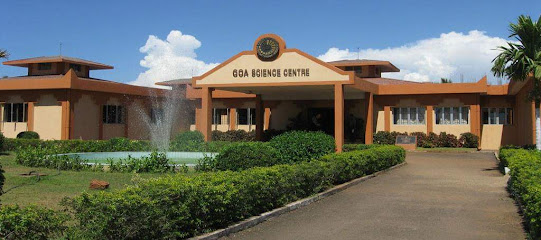
Malson Shoes
Discover the tranquil beauty of Malson Shoes in Panaji, Goa - a perfect blend of nature and culture in a serene park setting.
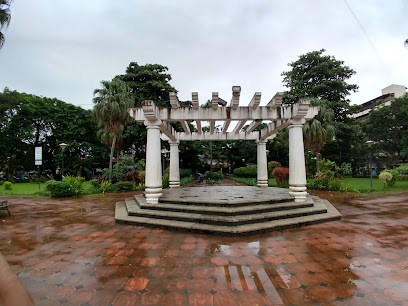
Sunaparanta
Discover Goan art and culture at Sunaparanta, a vibrant center for exhibitions, workshops, and community engagement in Panaji.
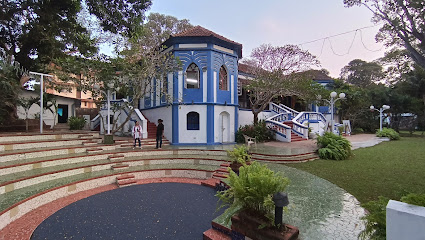
CasinoInGoa
Experience the thrill of gaming at CasinoInGoa in Panaji, a premier entertainment destination in the heart of Goa.
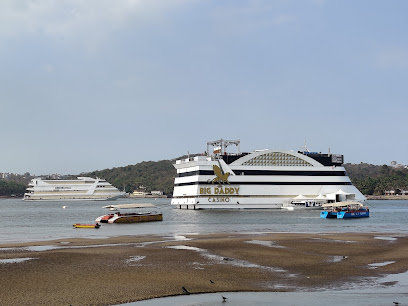
Fountainhas Colorful Houses
Explore Fountainhas, Panaji's Latin Quarter: A vibrant mix of Portuguese architecture, colorful houses, and Goan heritage.
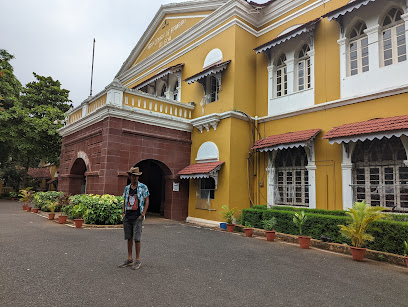
Inox panjim
Catch the latest Bollywood & Hollywood blockbusters at Inox Panjim, Goa's premier multiplex cinema in the heart of the capital city.
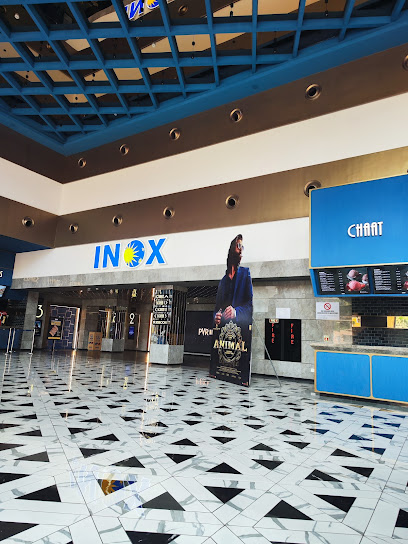
Essential places to dine
The Fisherman's Wharf Panjim
Discover authentic Goan flavors at The Fisherman's Wharf Panjim - a seafood haven where culinary tradition meets modern flair.
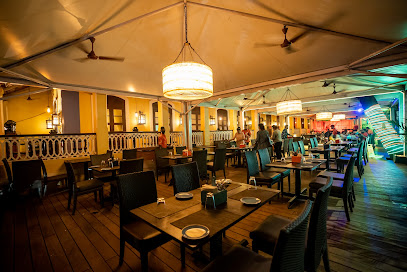
The Black Sheep Bistro
Discover culinary excellence at The Black Sheep Bistro in Panaji, Goa - where local flavors meet international flair in an inviting atmosphere.
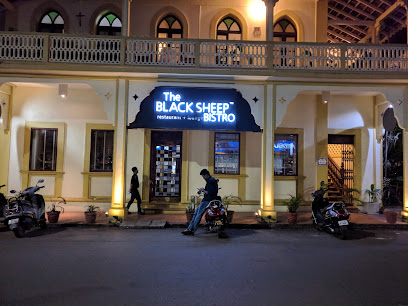
Kokni Kanteen Goa
Discover authentic Goan and Konkani flavors at Kokni Kanteen in Panaji—where every dish tells a story.
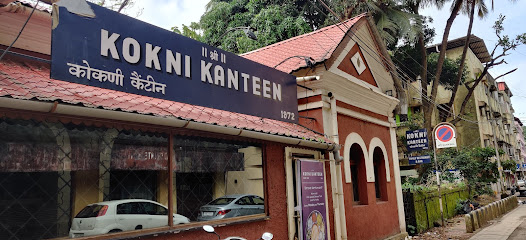
Mum's Kitchen
Savor the rich flavors of traditional Goan cuisine at Mum's Kitchen in Panaji - a culinary journey not to be missed.
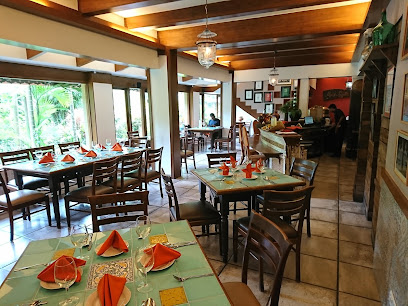
Viva Panjim
Discover the flavors of Goa at Viva Panjim - where family-friendly dining meets authentic local cuisine.
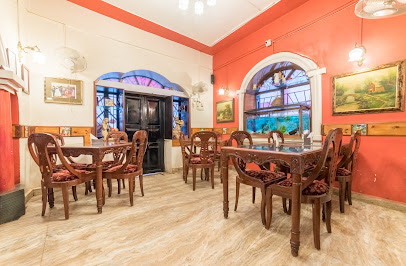
Copperleaf Panaji
Discover authentic Goan flavors at Copperleaf Panaji, where every dish tells a story of culinary tradition and passion.
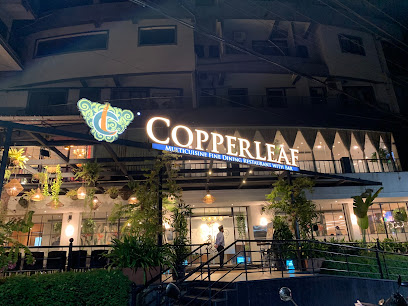
Casa Bhonsle Restaurant and Bar
Discover authentic Goan flavors at Casa Bhonsle Restaurant & Bar in Panaji - seafood delights and vegetarian specialties await you.
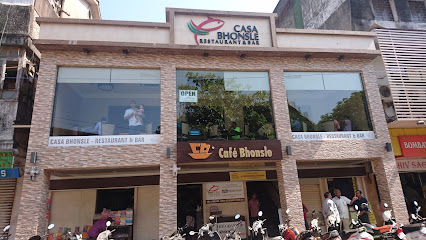
MASAK by Tato's
Discover the flavors of Goa at MASAK by Tato's – a family-friendly gastropub serving delectable seafood and authentic Indian dishes in Panaji.
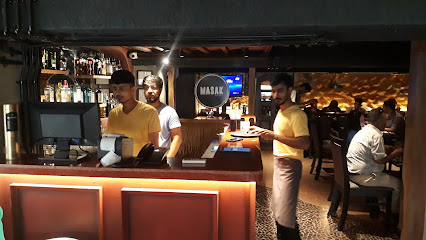
George Restaurant & Bar
Experience authentic Goan cuisine at George Restaurant & Bar in Panaji - where tradition meets taste in every dish.
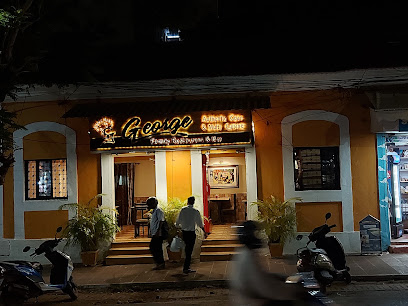
Simply Grills
Discover Simply Grills: Where Fresh Seafood Meets Exquisite Grilling in Panaji's Coastal Paradise.
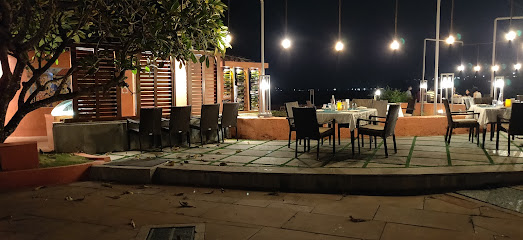
Markets, malls and hidden boutiques
99 Store
Discover unique gifts and local handicrafts at 99 Store, a must-visit shop in Panaji's vibrant New Municipal Market.
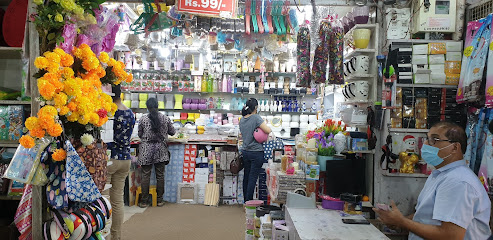
Sacha's Shop
Discover unique designer clothing and local craftsmanship at Sacha's Shop, a must-visit destination in the heart of Panaji, Goa.
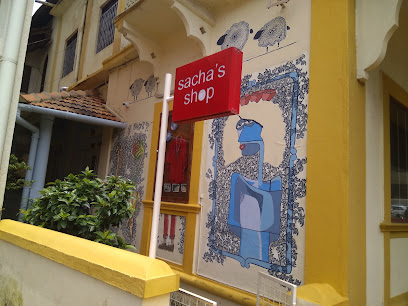
Indian Story
Discover the vibrant blend of couture and craftsmanship at Indian Story, a premier boutique in the heart of Goa's Panaji.
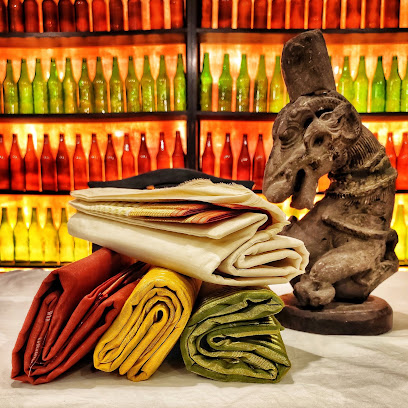
Akbar Store
Explore Akbar Store in Panjim, Goa - your go-to destination for trendy women's and children's clothing in a vibrant market setting.

Mangeshi Fancy Store
Explore Mangeshi Fancy Store in Panaji, Goa for trendy cosmetics, boutique apparel, and exquisite jewelry in a vibrant market atmosphere.
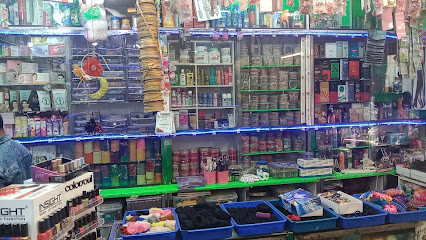
Laxmi Fancy Stores
Explore the vibrant local crafts and souvenirs at Laxmi Fancy Stores in Panaji, a boutique that captures the essence of Goan culture.
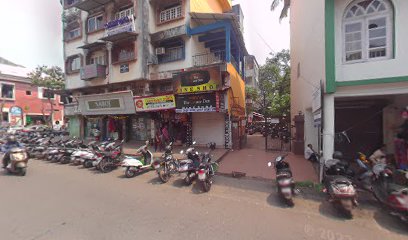
Goan Boutique
Explore Goan Boutique for unique gifts and clothing that reflect the vibrant culture of Goa, perfect for every traveler seeking local treasures.
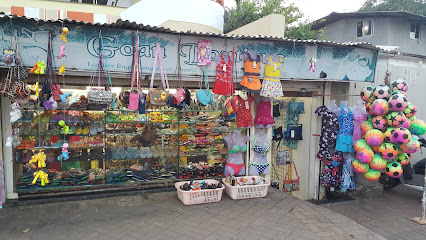
Fairoz Boutique
Explore Fairoz Boutique in Panaji for a unique blend of contemporary and traditional Goan clothing, showcasing local craftsmanship.
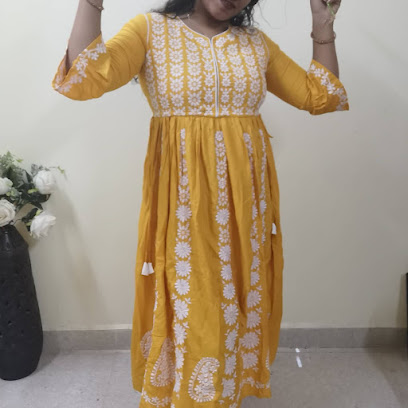
Nasira's Unique Chreads
Discover the essence of Goan fashion at Nasira's Unique Chreads, a trendy women's clothing store in vibrant Panaji, Goa.

Unique Collection
Explore Unique Collection Boutique in Panaji for exquisite handicrafts, vibrant textiles, and authentic Goan souvenirs reflecting the rich culture of Goa.
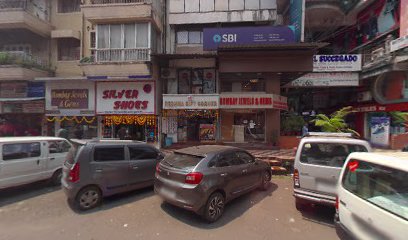
Essential bars & hidden hideouts
Joseph Bar
Discover the vibrant flavors of Goa at Joseph Bar, a beloved tapas bar in Panaji offering a delightful menu and lively atmosphere.
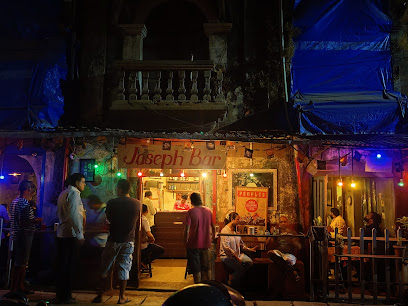
Soho
Experience the vibrant nightlife at Soho, Panaji's premier pub, where great drinks and lively entertainment await every night.
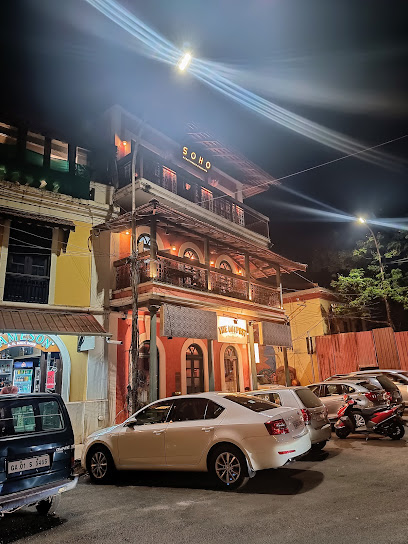
Petisco- Kitchen & Bar
Discover the vibrant flavors of Goa at Petisco - Kitchen & Bar, where innovative small plates meet exquisite cocktails in a cozy ambiance.
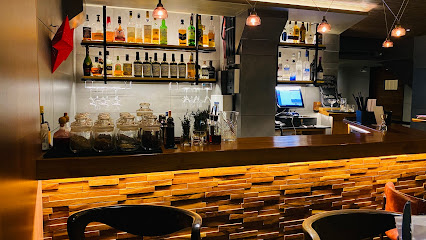
K BAR
Discover K BAR in Goa - where vibrant atmosphere meets exquisite flavors in the heart of Panaji.
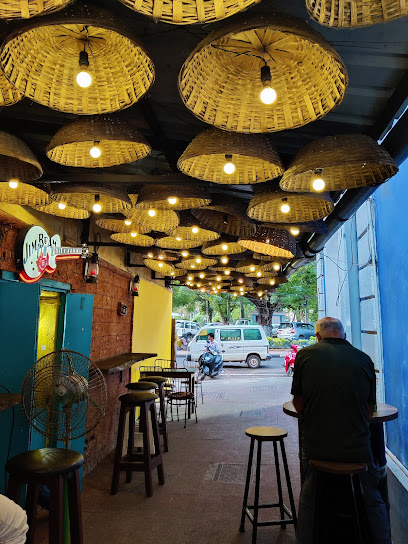
BAR 51
Discover the vibrant nightlife at BAR 51, a lively cocktail bar and restaurant in Altinho, Panaji, Goa, perfect for unwinding and socializing.
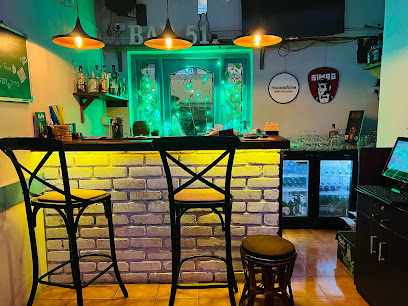
Ace`s The Pub & Restaurant
Discover the lively essence of Goa at Ace's The Pub & Restaurant, where local flavors meet vibrant nightlife in the heart of Panaji.
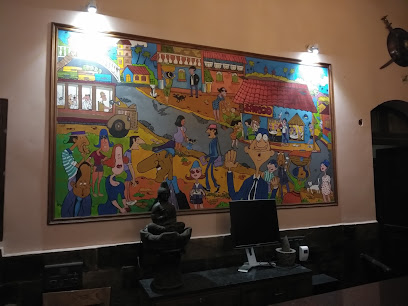
Publix Bar & Wine Shop
Discover the charm of Publix Bar & Wine Shop in Panaji—where delightful drinks and delectable dishes create the perfect escape in Goa.
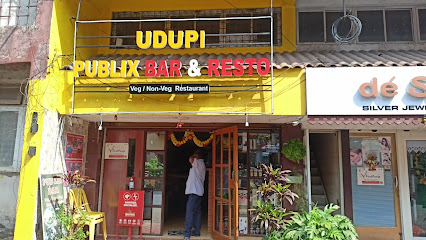
Gandharav Bar & Restaurant
Experience the vibrant spirit of Goa at Gandharav Bar & Restaurant, where authentic flavors meet a lively atmosphere in the heart of Panaji.
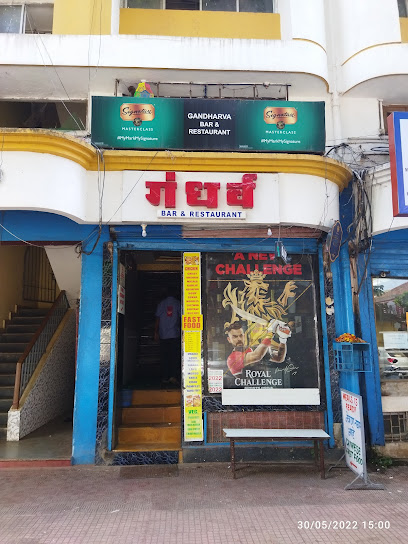
MM Bar and Restaurant
Discover the vibrant nightlife at MM Bar and Restaurant in Goa, where delicious cocktails and local cuisine create an unforgettable experience.
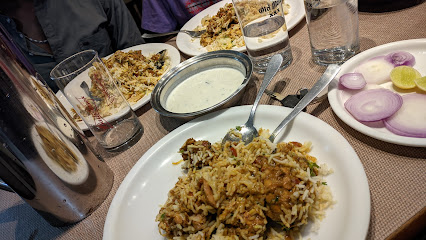
CIFA BAR
Discover CIFA BAR, a cozy spot in Panaji, Goa, where local spirits and snacks meet warm hospitality and a vibrant atmosphere.
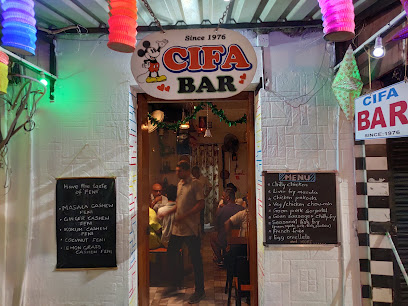
Local Phrases
-
- Helloनमस्कार
[Namaskar] - Goodbyeबाय
[Bai] - Yesहो
[Ho] - Noनको
[Nako] - Please/You're welcomeकृपया
[Krupaya] - Thank youधन्यवाद
[Dhanyavad] - Excuse me/Sorryक्षमा करा
[Kshama kara] - How are you?तुमका कसा आहे?
[Tumka kasa ahe?] - Fine. And you?चां. आणि तुझं?
[Chan. Ani tuzha?] - Do you speak English?तुम्हाला इंग्रजी येते का?
[Tumhala ingraji yete ka?] - I don't understandमला समजलं नाही
[Mala samajal nahi]
- Helloनमस्कार
-
- I'd like to see the menu, pleaseकृपया मेनू पाहू इच्छितो
[Krupaya menu pahu ichchhito] - I don't eat meatमी मांस खात नाही
[Mi mans khat nahi] - Cheers!चियर्स!
[Cheers!] - I would like to pay, pleaseकृपया मी भरू इच्छितो
[Krupaya mi bharu ichchhito]
- I'd like to see the menu, pleaseकृपया मेनू पाहू इच्छितो
-
- Help!मदत!
[Madat!] - Go away!निघून जा!
[Nighun ja!] - Call the Police!पोलीसला कॉल करा!
[Polisla call kara!] - Call a doctor!डॉक्टरला कॉल करा!
[Doctorla call kara!] - I'm lostमला हरवून गेलं आहे
[Mala harvun gel ahe] - I'm illमला आजार आहे
[Mala ajar ahe]
- Help!मदत!
-
- I'd like to buy...मला विकत घ्यायचं आहे...
[Mala vikat ghayache ahe...] - I'm just lookingमी फक्त बघत आहे
[Mi fakt baghat ahe] - How much is it?दार किती आहे?
[Dar kiti ahe?] - That's too expensiveते खूप महाग आहे
[Te khup mahag ahe] - Can you lower the price?तुम्हाला किंमत कमी करायची आहे का?
[Tumhala kimat kami karaychi ahe ka?]
- I'd like to buy...मला विकत घ्यायचं आहे...
-
- What time is it?किती वाजलं आहे?
[Kiti wajal ahe?] - It's one o'clockएक वाजलं आहे
[Ek wajal ahe] - Half past (10)दहा वाजलं झालं
[Daha wajal jhal] - Morningसकाळ
[Sakal] - Afternoonदुपार
[Dupar] - Eveningसंध्याकाळ
[Sandhyakal] - Yesterdayकाल
[Kal] - Todayआज
[Aaj] - Tomorrowउद्या
[Udya] - 1एक
[Ek] - 2दोन
[Don] - 3तीन
[Teen] - 4चार
[Char] - 5पाच
[Pach] - 6सहा
[Saha] - 7सात
[Sat] - 8आठ
[Ath] - 9नऊ
[Nau] - 10दहा
[Daha]
- What time is it?किती वाजलं आहे?
-
- Where's a/the...?...कुठे आहे?
[...Kuthe ahe?] - What's the address?पत्ता काय आहे?
[Patta kay ahe?] - Can you show me (on the map)?तुम्हाला मला दाखवू शकता का?
[Tumhala mala dakhavu shakta ka?] - When's the next (bus)?पुढील कोणता आहे?
[Pudhil konata ahe?] - A ticket (to ....)एक टिकिट (...ला)
[Ek ticket (...la)]
- Where's a/the...?...कुठे आहे?
History of Panaji
-
Panaji, originally known as 'Panjim', was established as the capital of Portuguese India in 1843. The area was strategically chosen for its location along the Mandovi River, which facilitated trade and defense. The Portuguese influence is evident in the architecture, with beautiful colonial buildings like the Church of Our Lady of Immaculate Conception, which dates back to 1541. This period marked the beginning of Panaji's transformation into a vibrant cultural and administrative center.
-
In the late 19th and early 20th centuries, the Latin Quarter of Panaji, known as Fontainhas, began to develop. This area, characterized by narrow winding streets and colorful houses, reflects the unique blend of Portuguese and Indian cultures. The architecture features azulejos (ceramic tiles) and balconies, showcasing the artistic influences of the time. Fontainhas is now recognized as a heritage precinct, preserving the cultural essence of Panaji.
-
The struggle for Goa's liberation from Portuguese rule in the mid-20th century saw Panaji as a focal point for activism and political movements. The Indian government launched a military operation, 'Operation Vijay', in December 1961, which led to the annexation of Goa. This pivotal moment in history is commemorated in various monuments and memorials throughout the city, highlighting Panaji's role in the broader context of India's independence.
-
Today, Panaji is a vibrant melting pot of cultures, showcasing its rich heritage through festivals, cuisine, and art. The annual Goa Carnival, celebrated with music, dance, and parades, reflects the city's Portuguese legacy and Goan traditions. The convergence of various communities, including Hindus, Catholics, and others, contributes to the eclectic cultural tapestry of Panaji, making it a unique destination in India.
-
In recent years, Panaji has embraced sustainable urban development while preserving its historical charm. Initiatives aimed at promoting eco-tourism and maintaining the city's heritage have emerged, with public spaces being revitalized and historical sites receiving attention. The city's commitment to sustainability is evident in its green spaces and efforts to promote local culture through art exhibitions and community events.
Panaji Essentials
-
Panaji, the capital city of Goa, is well-connected to other parts of the state. From the Dabolim Airport, which is about 30 kilometers away, you can hire a taxi or use app-based ride services to reach Panaji. If you're traveling from other neighborhoods like Calangute or Baga, local buses operate frequently, and taxis are also available. The Kadamba Bus Stand in Panaji serves as a hub for intercity buses, making it easy to reach from places like Margao or Mapusa.
-
Panaji is a compact city, and many attractions are within walking distance. Local buses are an economical option for getting around, but they may not always be the most convenient. Auto-rickshaws are available and can be hailed on the street or booked via apps. For a unique experience, consider renting a bicycle to explore the city's scenic routes. Taxis and private car rentals are also options for longer distances.
-
Panaji is generally safe for tourists, but standard precautions should be observed. Be cautious in crowded areas and avoid displaying valuables. Areas around the waterfront and busy markets may attract petty crime, so stay vigilant. It’s advisable to avoid the outskirts of the city at night, especially unlit areas. Always trust your instincts and seek help if something feels off.
-
In case of an emergency, dial 100 for police assistance and 108 for ambulance services. The nearest hospital in Panaji is the Goa Medical College, one of the oldest medical colleges in Asia. It's wise to carry a copy of your travel insurance information. For minor issues, there are pharmacies throughout the city where you can purchase over-the-counter medications.
-
Fashion: Do dress modestly, especially when visiting religious sites like the Church of Our Lady of Immaculate Conception. Don't wear beachwear outside of the beach areas. Religion: Do respect local customs and traditions. Always ask before taking photos in religious places. Public Transport: Do respect fellow passengers and give your seat to the elderly. Don’t eat or drink on public transport. Greetings: Do greet locals with a friendly 'Namaste.' Don’t use overly casual greetings. Eating & Drinking: Do try local Goan cuisine and drink bottled water. Don't refuse food offered to you, as it's considered impolite.
-
To experience Panaji like a local, visit the local markets such as the Panaji Municipal Market for fresh produce and handmade goods. Explore the Latin Quarter of Fontainhas for its colorful houses and vibrant art scene. Don’t miss the chance to take a boat ride on the Mandovi River, especially during sunset. Engage with locals at small eateries to savor authentic Goan dishes and enjoy conversations about their culture and history.
Nearby Cities to Panaji
-
Things To Do in Goa
-
Things To Do in Pune
-
Things To Do in Mumbai
-
Things To Do in Mysore
-
Things To Do in Bengaluru
-
Things To Do in Nashik
-
Things To Do in Aurangabad
-
Things To Do in Kozhikode
-
Things To Do in Coimbatore
-
Things To Do in Kochi
-
Things To Do in Chennai
-
Things To Do in Puducherry
-
Things To Do in Pondicherry
-
Things To Do in Vadodara
-
Things To Do in Madurai













